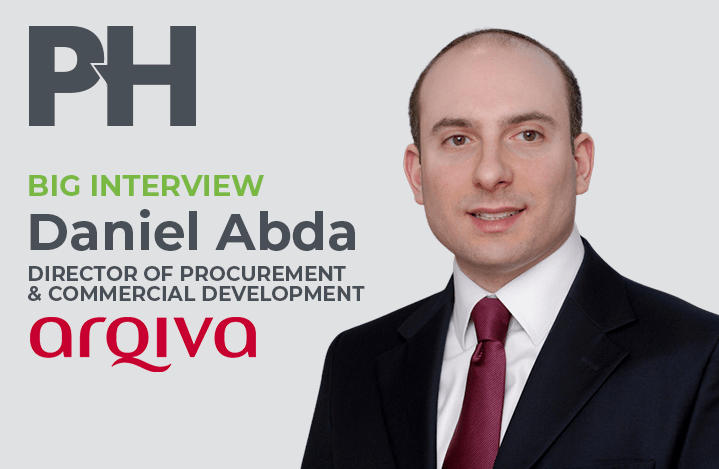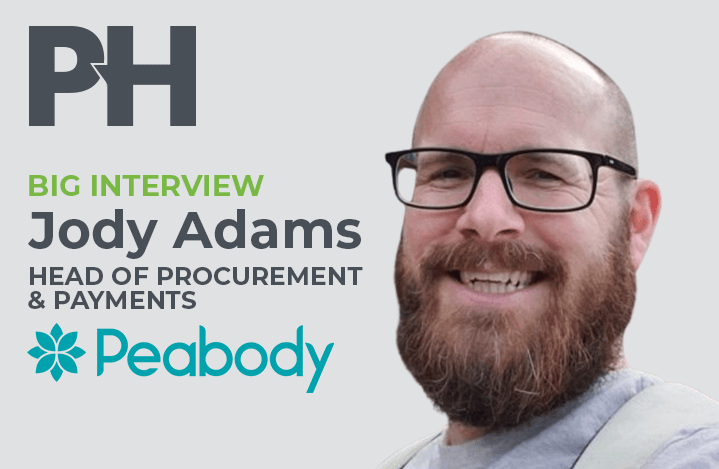How did you get into procurement?
It’s an interesting question, I got into procurement at university when I was volunteering for an international youth agency and one of their issues was budget.
They couldn’t quite do everything with their budget and I went away and looked at how to solve the problem and the way to do that was to look at all of their contracts and see if we could negotiate them.
I got a real buzz out of that. I realised that I was better at buying than I was at selling as I was actually running my own business at the time.
I did a masters in business, focusing my dissertation on procurement and got my first job with a boutique US firm that specialised in procurement.
That was it for me and I have stayed in procurement ever since.
What do you love about procurement?
When you can move a needle within a business because of procurement.
I had an opportunity fairly recently where a company wanted to do something completely different, they were saying I have a business problem to solve and I need the supply chain to solve it.
That is what I like, it is about helping the business to understand their problem and understanding how it can be solved by a proficient supply chain and then working with those prospective bidders on developing a solution and forming some form of partnership and managing it through to see an end result.
I really enjoy the bigger programmes I have worked on where the procurement takes 12 months plus.
I enjoy getting into it and delivering a fundamental change to the business as a result of procurement. And having the business turn around and say, “Wow that’s what the procurement team do, look how much better we are, come on every journey with me please”.
Are there any aspects of procurement that you have found particularly challenging?
The thing I find the most challenging, and I think it is because most of the organisations I work for are sales driven, so the products are products for resale, is the terms you have to work with because the customer is asking for a product and the sales team just want to be able to deliver that product.
Now of course, if you have all of the product already tied up that’s fine but a number of times it is bespoke, you won’t always have the supplier on a PSL so you are having to work very rapidly on a timeline that is being dictated by the customer to try and sign up suitable suppliers, which is always challenging because you are trying to balance the need to get great service because you are relying on that supplier to meet your own SLAs when they have a bit of a ransom situation going on, as they know you need them.
Of course, you try to create competition where you can, but the biggest challenge is trying to deal with the stakeholders, they just want to be able to bid, they want to get that bid in in time and they want to win it.
We have to keep reminding them that you have got to have a reliable supply chain otherwise it is all going to fall down and it is very testing sometimes.
Can you tell us about your biggest achievements?
When I think back about my career and what I am the proudest of it is probably working on the London 2012 Olympics organising committee.
I was working as a consultant at the time and it was four years to go before the games, I remember that because there were TV cameras filming as it was 1,000 days to go before the Games started.
I was asked to go in with a team and do a survey of the risk to the organising committee being able to meet the challenge of delivering the games for £2 billion. Because £2 billion is what they thought they could make from ticket and other sales and they didn’t want to rely on the government for handouts.
I went in and I said to the executive at the time, I don’t think this is what you need, I know this is what you’re asking us to deliver as a report but I think what you actually need is a procurement organisation design and to understand what it is that you’re buying. There is no point in saying what the risk is today. They said they want the risk report, so I said to my team ok we are going to give them a risk report, but we are also going to give them the actual plan.
We gave them a bottom’s up report and had to explain to them what category management was, we had to explain to them supplier relationship management, where you have to look at who your tactical and strategic suppliers are and why McDonald’s wasn’t a strategic supplier and Usain Bolt wouldn’t need a hamburger just before the 100 metres!
We delivered a plan that spoke about the people, the processes and the technology and we delivered it to the Chief Executive and he said it was great.
I was proud to say that four years later after the games when we looked back, the design and what we bought was practically spot on to the original plan.
As someone who had never worked an Olympics before I was proud of that.
What are your strengths?
We have just gone through a have your say survey so I have feedback that I have tenacity. When I take on a task I drive it through and people recognise that.
My team like my clarity of vision and my leadership style. There is no ambiguity, I am direct in a positive way.
People feel empowered by me. The other one that came up a lot is problem-solving. I was told by an Executive that “we talk to people about lots of problems but you come up and say here is the problem and you have solved it already”.
What is the biggest lesson you have learnt on your procurement journey?
I always go back to one point and it is the one point that has stuck with me was from when I was doing my CIPS qualification. I did it via the professional manager route, I had been working as a consultant for a number of years. I applied for the CIPS qualification and I was being interviewed and they asked, “How do you get the best result in a negotiation?” and me being me went through all the methodology and structure and looking at data.
Afterwards, when we did the feedback the examiner said to me, “The answer I wanted was very simple, the answer was competition because competition will always get you the best result”.
It is interesting because I have been involved in a lot of negotiations where there is a monopoly supply and there really isn’t competition, but you really do have to find that leverage, it does make a fundamental difference so I’ve learnt to always hunt for leverage, you’ve got to create some sort of competition or whatever you want to call it.
Is there anyone who has had a significant influence on you?
The one that I whose example I use a lot is from Ninian Wilson, who is one of the greatest procurement professionals. That was at the Royal Mail, I’d gone in as a consultant for the procurement transformation programme they had given it a catchy name ‘Three in Three’ and what was the most amazing thing was the clarity of vision.
They had the vision, had the tools and such a clearly communicated strategic plan.
I always say for every team I lead, we have to be very clear about what we are doing and how we are doing it and how we are going to report back our successes and I got all of that from Ninian and that programme.
What do you like doing in your spare time?
I have two young kids, so fatherhood is fairly new to me but I am relishing it so most of my life at the moment is on entertaining them and finding ways to entertain them which can be a challenge! I enjoy looking for opportunities to spend time with them.
I am very much into aircraft, I am fascinated by flight. I enjoy being on the aeroplane more than going to the destination! I was lucky enough in my career to spend a lot of time on aircraft.
I also enjoy business autobiographies, I read one recently called Shoe Dog by Phil Knight who founded Nike. He actually studied to become a writer to write the book, to not have a ghostwriter he was that determined a character, I thought it was phenomenal with all his business success to have the energy and passion to do something like that.
Is work-life balance something that is important to you?
It is very important, apart from health. But for me wanting to spend time with the children – it has been hard through the pandemic, what I try to do is set aside specific times.
For example, if I’m home, I set aside a predetermined hour for kids’ time, bath, bed reading time that is there so that I always know that I am going to pause I won’t have meetings booked during those times and can carry on after.
It is about carving out specific slots in my diary that say ‘that’s mine’ and I work around those times.






